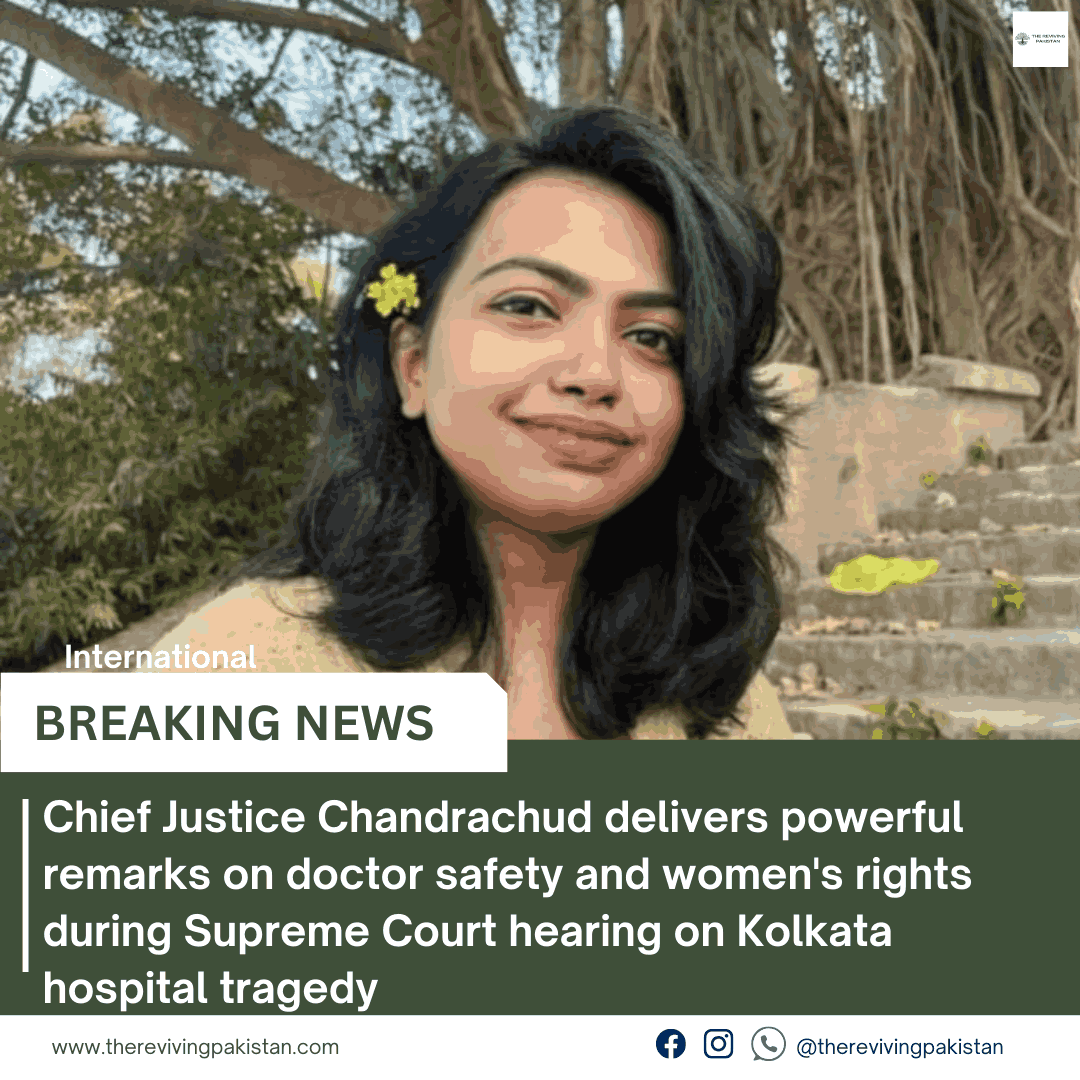In today’s hearing of the Kolkata doctor’s rape and murder case, Chief Justice of India DY Chandrachud made significant observations regarding women’s safety and equality in the workplace. The Supreme Court, led by CJI Chandrachud, emphasized that the case extends beyond a single incident, highlighting systemic issues of safety for doctors across India, particularly women and young medical professionals.
CJI Chandrachud stressed the critical link between safe working conditions and gender equality, stating, “If women are not able to go to work and conditions are not safe, we are denying them equality.” He highlighted the challenging circumstances faced by many young doctors, noting that interns and residents, often women, frequently work shifts as long as 36 hours. In light of these concerns, the CJI called for the development of a national protocol to ensure safe working conditions for medical professionals.
The Supreme Court strongly condemned the incident, describing it as “horrific” and “horrendous.” It criticized the West Bengal government for the delay in registering an FIR and proposed establishing a national task force to create guidelines for the safety and protection of medical professionals nationwide. The court also urged protesting doctors to resume work, assuring them that their safety and protection are of the utmost national importance.
The Supreme Court strongly condemned the incident at RG Kar hospital, criticizing the West Bengal government’s slow response in filing an FIR. To address the issue, the court suggested creating a national task force for medical professionals’ safety and urged protesting doctors to resume work, assuring them of the court’s concern for their well-being.
The court also expressed concern about the media’s inappropriate sharing of the victim’s personal information. CJI Chandrachud revealed disturbing aspects of the case, including attempts to cover up the murder as suicide and denying the victim’s parents access to her body.
The case involves a trainee doctor found murdered in a Kolkata hospital, with evidence of sexual assault. This tragedy has ignited a wider debate on the safety of healthcare workers, particularly women, and the need for systemic reforms to ensure their protection.

